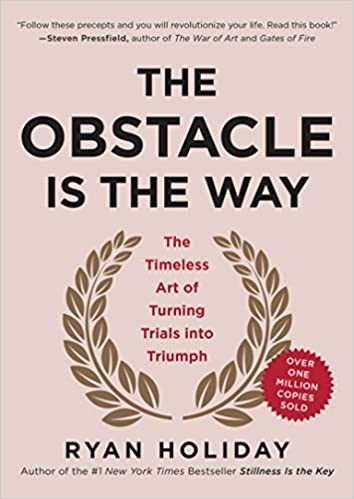Category: Personal Growth
(78 von 100)
Why: I need fewer constraints to freely control my life.
Goal: Learn how to use each obstacle as fuel in my business journey.
Table of Contents
Action: Do Your Job!
3 Key Concepts
Summary
How to stop worry and do your job?
- Keeping things simple
“At every moment keep a sturdy mind on the task at hand, as a Roman and human being, doing it with strict and simple dignity, affection, freedom, and justice — giving yourself a break from all other considerations. You can see how mastery over a few things makes it possible to live an abundant and devout life — for, if you keep watch over these things, the gods won’t ask for more.” — Marcus Aurelius, “Meditations,” 2.5 - Focus on the main thing
“If you seek tranquility, do less. Or (more accurately) do what’s essential. Do less, better. Because most of what we do or say is not essential.” — Marcus Aurelius
“The main thing is to keep the main thing the main thing.” – Brendon Burchard in his book High Performance Habits.
This book narrates key principles of stoicism and shows you how obstacle becomes the way in doing anything.

Stoicism
Stoicism is a philosophical practice that focuses on these core principles:
- Make the best use of your time
- Be the master of your emotions
- Walk the path of virtue
- Develop self-mastery (the ability to control one’s own desires or impulses)
Be humble to learn
First, the idea is to practice misfortune. This prepares you to be ready in the face of adversity; flipping obstacles upside down turns problems into opportunities, and remembering how small you keep your ego manageable and in perspective. Second, be ready to learn from anyone who encounters.
Ruthlessly protect your time
“The difference between successful people and really successful people is that really successful people say no to almost everything.” Because when you say no, you’re protecting your time and your energy to focus on the big and important items in your life.
Live below your means
You won’t know what is important when you squander your resources. You should be aiming to live with the least, with the things that are actually necessary.
I think frugality drives innovation, just like other constraints do, One of the only ways to get out of a tight box is to invent your way out.
Jeff Bezos
Billionaire investor Mark Cuban has also advocated for ruthlessly eliminating frivolous expenditure: “The more you stress over bills, the more difficult it is to focus on your goals. The cheaper you can live, the greater your options.”
The more things we desire and the more we have to earn or maintain those achievements, the less we actually enjoy our lives — and the less free we are.
To sum up
The lesson I have learned from the book is that I must practice frugality to focus on what matters at hand. And remind me to never do anything out of habit or to take it for granted.
I think that’s the single best piece of advice: Constantly think about how you could be doing things better and questioning yourself.
Elon Musk
Goal check: I learned how to befriend obstacles in life and practice walk between order and chaos to sharpen my self-control skill.
Wasu’s Review
( 5.0 / 5.0 )
Get this book on Amazon here!
Bonus:

Buddhist Virtues “Eightfold Path factors.“
Credit: Wikipedia.org
An early summary of the path of Buddhist practices leading to liberation from the painful cycle of rebirth.
These practices started with the understanding that the body-mind works in a corrupted way (right view), followed by entering the Buddhist path of self-observance, self-restraint, cultivating kindness and compassion, and culminating in samadhi, which reinforces these practices for the development of the body-mind.
| Division | Eightfold Path factors |
|---|---|
| Moral virtue (Sanskrit: śīla, Pāli: sīla) | 3. Right speech |
| 4. Right action | |
| 5. Right livelihood | |
| Meditation (Sanskrit and Pāli: samādhi) | 6. Right effort |
| 7. Right mindfulness | |
| 8. Right concentration | |
| Insight, wisdom (Sanskrit: prajñā, Pāli: paññā) | 1. Right view |
| 2. Right resolve |

